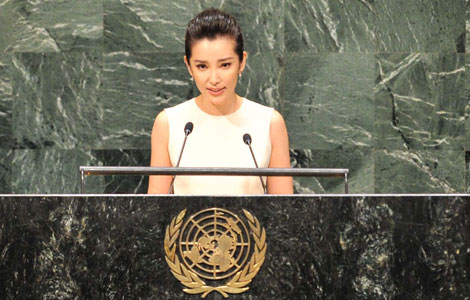A concrete step forward to mend ties
Updated: 2014-10-08 06:50
By CHEN LONGXIANG(China Daily USA)
|
||||||||
Any unexpected diplomatic action of the Democratic People's Republic of Korea can easily hit the headlines considering the delicate balance on the Korean peninsula. Well, this time it is really an eye-catching one.
A delegation of high-ranking officials of the DPRK, including Hwang Pyong So, vice-chairman of the DPRK National Defense Commission and director of the General Political Bureau of the Korean People's Army, and Choe Ryong Hae and Kim Yang Gon, secretaries of the Central Committee of the Workers' Party of Korea, made a surprise trip to the Republic of Korea for the closing ceremony of the Incheon Asian Games on Oct 4.
The Incheon Asian Games provided an appropriate approach to direct dialogue that the two Koreas have been seeking since the beginning of the year, said Gao Haorong, an expert on DPRK studies at the Xinhua Center for World Affairs Studies, a think tank under the Xinhua News Agency.
By sending high-level officials to attend the closing ceremony and hold talks with their ROK counterparts, Pyongyang wants to show its good faith to improve the inter-Korean relations, and create an atmosphere and opportunities for holding a regular north-south high-level dialogue, Gao said.
The visit of the high-ranking DPRK delegation demonstrated that Pyongyang is willing to mend the strained relations with Seoul to get rid of the status of being isolated diplomatically in the international community and create a peaceful environment for domestic economic development, said Hu Mingyuan, a researcher at the Center for Northeast Asian Studies in Jilin province.
In Incheon, the DPRK's three highest-ranking officials held talks with their South Korean counterparts, during which the officials agreed to hold the second round of high-level talks between late October and early November. The meeting is the highest in level between the two sides since the two countries' new heads of state came into office, Hu said.
The significance of the luncheon lies in that the visit can be seen as an ice-breaking trip that broke the status of stalemate between the two sides, and makes possible the turnaround of the inflammatory situation on the Korean peninsula, Gao said.
The ROK President Park Geun-hye said during a meeting of senior presidential secretaries on Oct 6 that she hopes the two Koreas could take the visit as an opportunity for "opening the door of peace" through dialogue and called for regularly holding a senior-level dialogue with the DPRK.
“However, an ‘Asian Games diplomacy' cannot solve all the problems as the two sides have substantive disagreements on a series of issues. So the future scenario on the peninsula will feature both dialogue and confrontation,” Gao said. Naval ships of the two Koreas traded warning fires near the disputed western sea boundary on Oct 7.
“The biggest achievement of the visit is that high-level officials of both sides carried out frank communication under a friendly atmosphere and reached an important consensus that both sides will hold the second round of high-level talks. This is an important turning point in the inter-Korean relations, which is expected to usher in a new situation of reconciliation and cooperation,” Hu said.
“The improvement of inter-Korean relations will play an active role in easing tensions in Northeast Asia and will create a new opportunity for the resumption of the Six-Party Talks that aims at negotiating a political solution to the DPRK nuclear issue,” Hu said.
On Oct 2, the DPRK ambassador to the UN So Se Pyong said the DPRK is not planning a nuclear or missile test and is ready for a new round of Six-Party talks, sending a message that the DPRK may resume the talks under certain circumstances.
chenlongxiang@chinadaily.com.cn
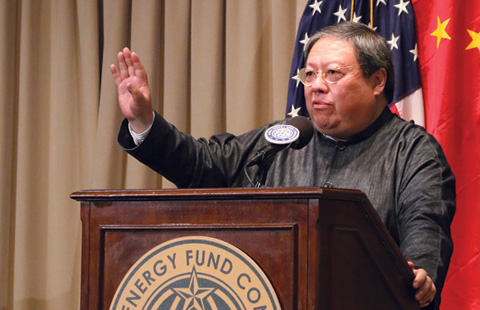
 Silent HK majority urged to support government
Silent HK majority urged to support government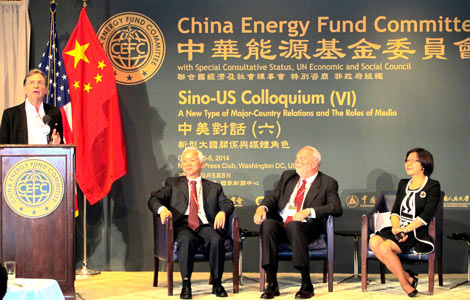
 Cultural bridge key for China, US
Cultural bridge key for China, US
 Romance at the West Lake
Romance at the West Lake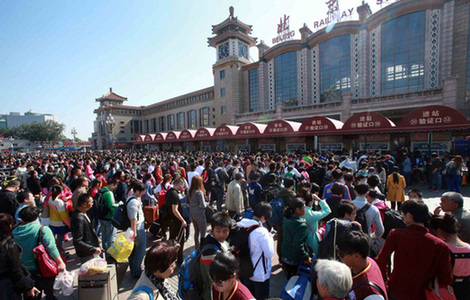
 Traffic embraces busiest day for holiday week
Traffic embraces busiest day for holiday week
 Chinese tourists flock to US for Golden Week
Chinese tourists flock to US for Golden Week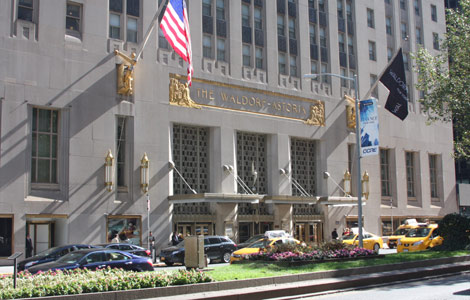
 Chinese insurer buys NYC's Waldorf Astoria Hotel
Chinese insurer buys NYC's Waldorf Astoria Hotel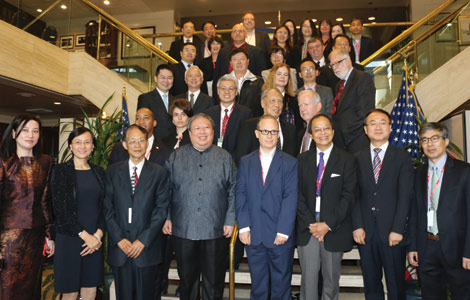
 China, US seek media common ground
China, US seek media common ground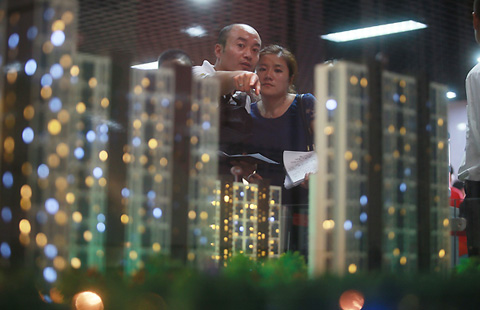
 Big believer in real estate now a skeptic due to sluggish sales
Big believer in real estate now a skeptic due to sluggish sales
Most Viewed
Editor's Picks

|

|

|

|

|

|
Today's Top News
US Commerce to help tap Chinese market
Chinese soldiers join exercises with Australia, US
Insurance group buys the Waldorf
Chinese having babies from abroad
A concrete step forward to mend ties
Silent HK majority urged to support government
HK govt to meet with students
Live report: 1 dead, 38 injured in Yunnan quake
US Weekly

|

|
